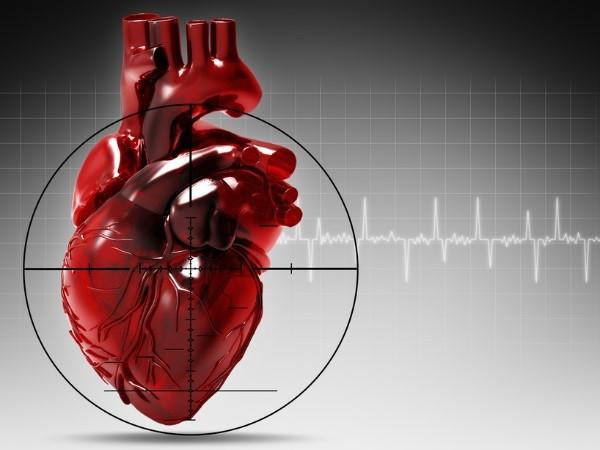When it comes to heart disease, ignorance is definitely not bliss.
Don’t be fooled by these deadly heart disease myths:
Myth #1: It only happens to older people.
Fact: Children and adolescents can begin building plaque in their arteries.
Myth #2: Heart disease runs in my family, so I’m doomed.
Fact: A healthy diet, regular exercise and the right nutritional support can go a long way in preventing heart disease, regardless of your family history.
Just because something may be in your genes does not mean those genes will be “awakened.” Lifestyle habits can do a lot to counteract genetic tendencies.
Myth #3: My cholesterol is normal, so my heart disease risk is low.
Fact: Cholesterol is not the main culprit behind plaque buildup—it’s inflammation in your arteries that triggers the process.
Plus cholesterol is only one of the “ingredients” in plaque build-up to begin with.
Plaque is also made of fatty deposits (especially trans-fats), fibrous proteins, smooth muscle cells and other wastes in your blood.
Myth #4: I’ve been smoking for so long it won’t make a difference if I quit.
Fact: The benefits of quitting smoking start instantly, no matter how long you have smoked.
After only one year after quitting, your heart attack risk will have dropped by 50 percent, and in 10 years, it will be the same as if you never smoked.
Myth #5: My blood pressure is controlled with medication, so my risk is minimal.
Fact: High blood pressure is only one of the factors that stirs up inflammation in your arteries and contributes to atherosclerosis. Even if your blood pressure is controlled, free radicals or excess glucose or homocysteine in your bloodstream can also raise your heart disease risk.
A great New Year’s resolution--help reduce YOUR heart disease risk
A great way to start out 2017 is to help minimize your risk of heart disease!
Here’s how:
Start with your diet
Concentrate on real foods like fresh vegetables, fresh fruit in moderation (1-2 servings a day), meats, poultry, fish and butter (never margarine).
Just as important is to avoid refined sugars and starchy carbs, and processed foods.
Sugars and starchy carbs such as breads, pasta, rice and crackers (even if they’re whole grain) can create surges of inflammation-stirring glucose in your bloodstream.
Many processed foods still contain trans-fats, and even if they don’t, they’re still loaded with chemicals and preservatives that litter up your blood with wastes. They are best avoided at all cost.
Plus here’s something you’ve probably never heard--saturated fat (from natural sources) IS GOOD FOR YOU, especially your heart and nervous system.
Moderation is the key, and that means a 3-4 oz. serving of meat (preferably organic), scrambled eggs for breakfast or butter on your toast or vegetables.
Get moving
Exercise lowers your blood pressure, strengthens your heart and improves blood flow.
No excuses allowed—even a walk around the block can be helpful.
Get your doctor’s OK and get moving toward better heart health.
The right nutrient support
Three key nutrients for cardiovascular support are vitamin D, Omega-3 essential fatty acids and vitamin B12.
Vitamin D has anti-inflammatory properties that can help counteract inflammation in your arteries. And now is the time to put this awesome nutrient to work for you with our brand-new Optimum D-K Formula with FruiteX-B® because it’s $5 off per bottle!
Omega-3 fatty acids have been medically proven to help lower blood pressure, they can help fight inflammation in your arteries and they help reduce the stickiness in your platelets and curb fibrinogens (which contribute to plaque). VitalMega-3 is your ticket to getting a health-supporting dose of these crucial fats.
Vitamin B12 converts homocysteine to a harmless amino acid. If left unchecked, homocysteine can cause inflammation in your blood vessels and raise your heart disease risk. Hydroxaden 2.5 is an easy, effective way to ensure your body has the B12 it needs for this vital task.
Get enough sleep
A recent study has shown that adults who sleep fewer than five hours a night have 50 percent more calcium in their coronary arteries than those who slept seven hours. Calcium buildup is a primary signal of heart disease.
Plus study participants who reported poor sleep quality also had 20 percent more calcium buildup in their arteries, compared to those who slept well.
Seven to nine hours of quality sleep per night should be your goal.
Now you can be on your way to better heart health!
I can’t think of a nicer way to start off the New Year.
To your health,
Sherry Brescia












Would love to see the reference for that study on sleep. Thanks.
I have high Cholestrol – What can you suggest to take???
Hi Rob…..I live in London and have these shipped over. Quality freezer packaging. This is the 3rd lot I’ve ordered.
I have got your book Great Taste No Pain but have a problem keeping to it ,I’m not bad but not good .Ihave heard that digestive enzymes and apple cider might help with my condition which is diverticulitis.Could you suggest anything .Susan.
I have been taking “Zeal” by Zurvita, which is a liquid vitamin.
It has all kinds of suppliments. Can you take to much of one suppliment, like vitamin B????